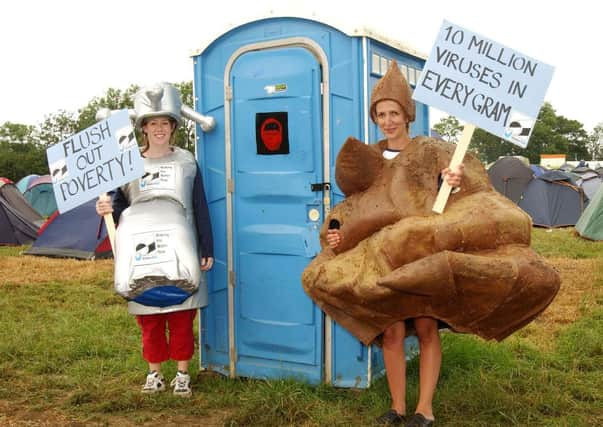Coronavirus: Clean water never more vital for world’s poorest – Steve Cardownie


Some time ago I was reflecting on a recent advertising campaign by the charity WaterAid and the work that they are undertaking throughout the world in an effort to provide access to clean water for those that are deprived of it and suffering as a result.
Of course there are many worthwhile charities that grab our attention and convince us to donate but the fact that so many people were still being denied this basic commodity led me to enquire further. It came as a bit of a surprise to me to learn that as many as 785 million people in the world – one in ten – do not have clean water close to home, which is bad enough but with the current Covid-19 pandemic ready to hit Africa, the threat to health is set to seriously increase still further.
Advertisement
Hide AdAdvertisement
Hide AdSome facts make for chilling reading and the lack of clean water for so many provides evidence that we are indeed in the midst of a worldwide crisis and one which will take an almighty effort by governments, the private sector and charities to mitigate.
Renowned international organisations have estimated that two billion people do not have a decent toilet of their own and three billion people do not have handwashing facilities at home, a problem which cannot be understated given the havoc that diseases wreak due to poor hygiene.
Every minute a newborn child dies due to infection brought on by the lack of clean water and an unclean environment. Diarrhoea caused by dirty water and poor toilets kills a child under five years old every two minutes. The scale of this problem has been recognised for some time and charities like WaterAid are committed to doing what they can to eradicate it.
So far it operates in 28 countries and since 1981 has helped provide 27 million people with clean water and is currently redoubling its efforts in attracting donors. The charity attempts to convince governments to amend or introduce laws which are of assistance and helps to link up those who develop policy with “people on the ground” in an attempt to ensure that expertise and resources are shared, and also to generate support from organisations and people throughout the world, ensuring lasting change on a huge scale.
Advertisement
Hide AdAdvertisement
Hide AdWaterAid is only one of a number of charities that are intent on tackling this problem and all are worthy of support if a difference is to be made but it cannot be left to them alone.
Governments have a crucial role to play in ensuring that capital investment and environmental policies promote the provision of clean water and toilet facilities in deprived areas.
Diseases such as dysentery, polio, trachoma, typhoid fever and cholera, amongst others, all pose a threat and are prevalent in areas where the water is contaminated and hygiene facilities non-existent – but they can be overcome, not just by treating the symptoms but by eradicating the cause.
The current pandemic is naturally commanding massive media attention and, as a result, other world health issues have been temporarily marginalised but they have not gone away and still demand attention. However, alarmingly, it is predicted that Covid-19 is set hit some other poorest areas next, with devastating consequences. The continent of Africa in particular is one that is ill-equipped to deal with this virus to the same extent that some other countries have managed, with health services being predicted to be unable to cope.
Advertisement
Hide AdAdvertisement
Hide AdAlthough the virus might appear to be on the wane in Scotland, unfortunately it is all set to do its worst to those that are least able to fight it off.
A message from the Editor
Thank you for reading this story on our website. While I have your attention, I also have an important request to make of you.
In order for us to continue to provide high quality and trusted local news on this free-to-read site, I am asking you to also please purchase a copy of our newspaper.
Our journalists are highly trained and our content is independently regulated by IPSO to some of the most rigorous standards in the world. But being your eyes and ears comes at a price. So we need your support more than ever to buy our newspapers during this crisis.
Advertisement
Hide AdAdvertisement
Hide AdWith the coronavirus lockdown having a major impact on many of our local valued advertisers - and consequently the advertising that we receive - we are more reliant than ever on you helping us to provide you with news and information by buying a copy of our newspaper.
Thank you
Joy Yates
Editorial Director
Comment Guidelines
National World encourages reader discussion on our stories. User feedback, insights and back-and-forth exchanges add a rich layer of context to reporting. Please review our Community Guidelines before commenting.